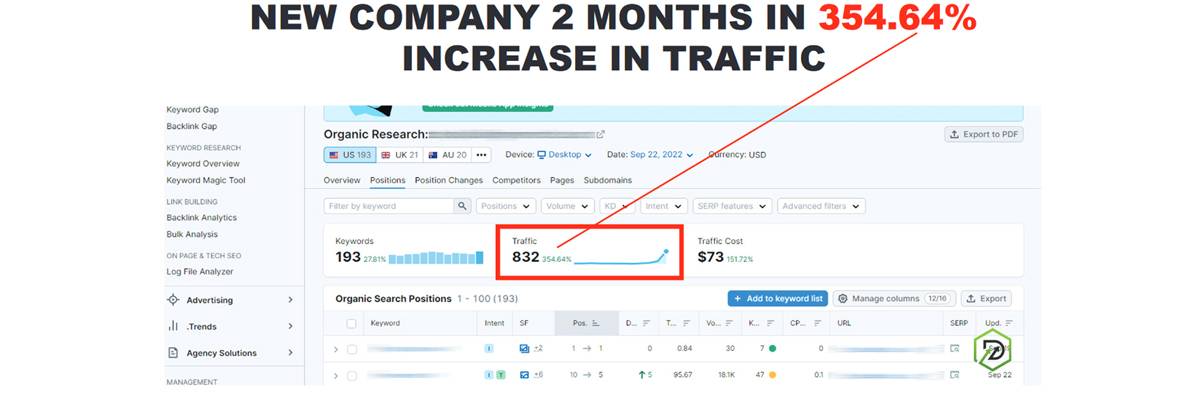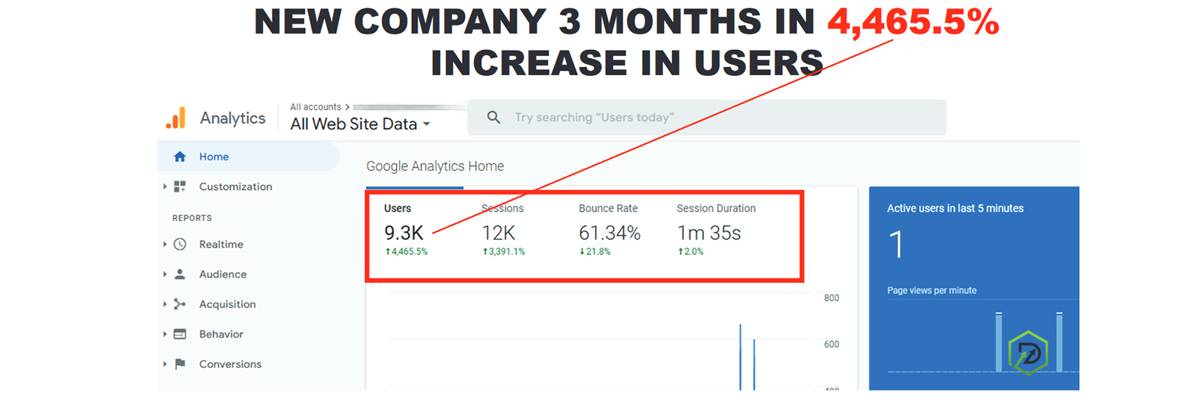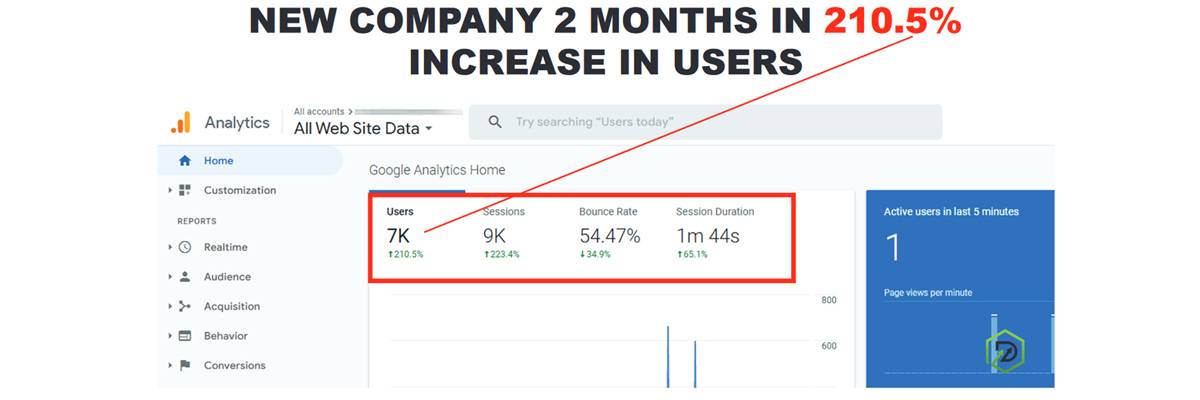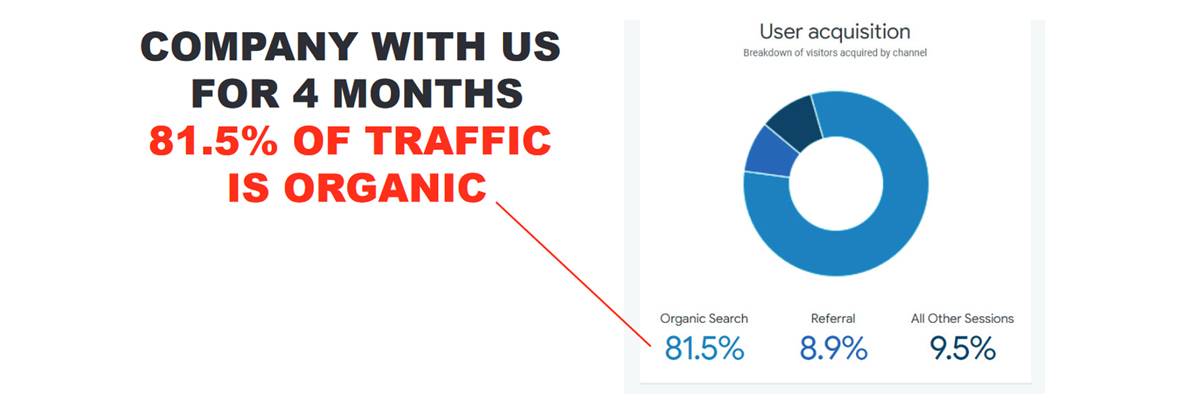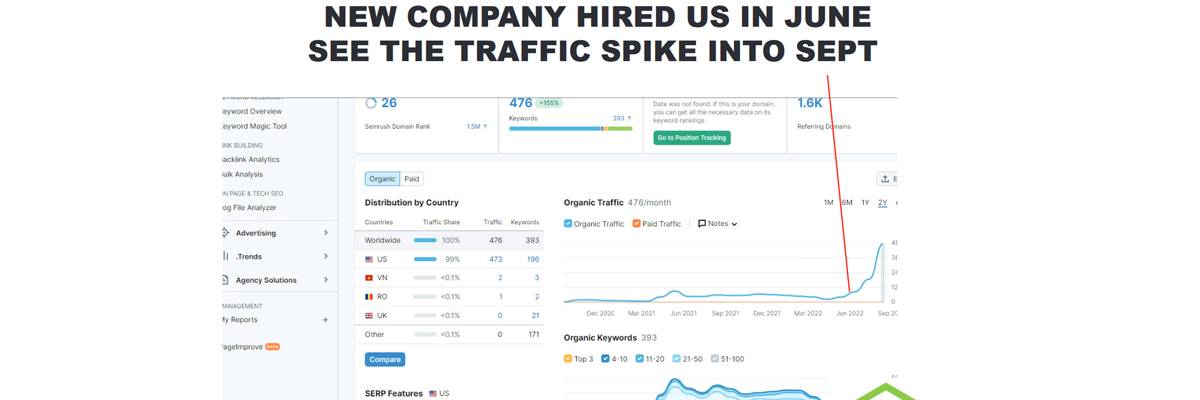SEO
28 Effective Methods to Increase Referring Domains for Your Website
In the competitive digital marketing world, maximizing the number of referring domains to your website is essential. The more quality backlinks you have from different domains, the higher your website will rank on search engine result pages (SERPs). This article will outline 28 proven techniques for increasing the number of referring domains to your website and improving your online visibility.
Understanding How to Increase Referring Domains
A referring domain is a website that links to your website. When a website links to your website, it is seen as a vote of confidence in your content or services. The number of referring domains to your website is a key factor in determining your website’s authority and ranking on search engines.
The Importance of Referring Domains for SEO
The more high-quality referring domains your website has, the more likely it is to rank higher on search engine result pages. Search engines like Google use backlinks as a ranking signal, and more backlinks from different domains generally lead to better rankings.
Common Mistakes to Avoid
Before diving into the techniques for boosting referring domains, let’s look at common mistakes that can negatively impact your SEO efforts. These include:
- Focusing solely on quantity over quality of backlinks
- Using black hat techniques to obtain backlinks
- Ignoring the relevancy and authority of the referring domains
- Not keeping track of your backlink profile

White Hat Techniques for Boosting Referring Domains
White hat techniques are ethical and sustainable methods for increasing referring domains to your website. Here are 14 proven techniques to consider:
1. Create Valuable Content
Creating valuable, informative, and unique content is one of the most effective ways to attract backlinks. High-quality content naturally attracts links from other websites, especially if it offers something new and valuable to readers.
2. Use Infographics
Infographics are an engaging and visual way to convey complex information. They are often shared on social media and can attract links from different websites. Infographics are easy to create and can be repurposed in different formats.
3. Guest Blogging
Guest blogging is a popular technique for attracting backlinks. By writing an article for another website, you can showcase your expertise and reach a new audience while receiving a backlink to your website.
4. Broken Link Building
Broken link building involves finding broken links on other websites and reaching out to the website owners to suggest a replacement link – ideally, one that leads to your website. This technique requires research and outreach but can be highly effective.
5. Resource Link Building
Resource link building involves creating a comprehensive and informative resource that others in your niche can link to. This could be a guide, a tool, or even a list of resources. The key is to make it valuable and informative enough that others will want to link to it.
6. Collaborate with Others in Your Niche
Collaborating with others in your niche can help you build relationships and attract backlinks. Consider partnering with other websites or influencers to create content or run a joint campaign.
7. HARO (Help A Reporter Out)
HARO is a platform that connects journalists with sources. By signing up for HARO, you can receive daily emails with opportunities to provide quotes or insights for journalists, which can lead to backlinks and exposure for your website.
8. Use Social Media to Your Advantage
Social media platforms like Twitter and LinkedIn can be valuable sources of backlinks. By sharing your content on social media, you can attract links from others who find your content valuable or interesting.
9. Blog Commenting
Leaving thoughtful comments on other blogs in your niche can help you build relationships and attract backlinks. Be sure to provide value and avoid spamming, which can hurt your reputation.
10. Engage in Forum Discussions
Participating in forums related to your niche can help you build relationships and attract backlinks. Be sure to provide value and avoid self-promotion, which can turn others off.
11. Participate in Webinars
Participating in webinars can help you showcase your expertise and attract backlinks. Consider partnering with other experts in your niche to host a webinar or participate in a panel.
12. Create a Podcast
Creating a podcast can help you reach a new audience and attract backlinks. Promote your podcast on social media and other channels to maximize exposure.
13. Publish eBooks or Whitepapers
Publishing eBooks or whitepapers can help you establish yourself as an authority in your niche and attract backlinks. Promote your eBooks or whitepapers on social media and other channels to maximize exposure.
14. Create Online Tools and Resources
Creating online tools and resources can help you attract backlinks from others who find your tools or resources valuable. Consider creating calculators, quizzes, or other interactive tools that others in your niche will find useful.

Grey Hat Techniques for Boosting Referring Domains
Grey hat techniques are not strictly ethical but are not considered black hats. While they can be effective, they carry some risks and should be used cautiously. Here are four grey hat techniques to consider:
1. Private Blog Networks (PBNs)
Private blog networks involve creating websites you control and use to link back to your main website. While this technique can be effective, it is risky and can result in a penalty from search engines.
2. Link Exchanges
Link exchanges involve trading links with other websites. While this technique can be effective, ensuring that the websites you exchange links with are relevant and authoritative is important.
3. Link Farms
Link farms are websites created solely to provide links to other websites. While this technique can be effective, it is risky and can result in a penalty from search engines.
4. Automated Link Building
Automated link building involves using software or bots to create backlinks to your website. While this technique can be effective, it is risky and can result in a penalty from search engines.

Black Hat Techniques for Boosting Referring Domains
Black hat techniques are unethical and can result in severe penalties from search engines. We do not recommend using any of these techniques. Here are four black hat techniques to avoid:
1. Cloaking
Cloaking involves showing different content to search engines than to human visitors. This technique is unethical and can result in a penalty from search engines.
2. Doorway Pages
Doorway pages are pages created solely to rank for specific keywords and redirect visitors to another page. This technique is unethical and can result in a penalty from search engines.
3. Hidden Text
The hidden text involves hiding it on a webpage so that it is not visible to human visitors but still picked up by search engines. This technique is unethical and can result in a penalty from search engines.
4. Article Spinning
Article spinning involves using software to create multiple versions of an article and submitting them to different websites for backlinks. This technique is unethical and can result in a penalty from search engines.
Monitoring Your Referring Domains
Once you have implemented some of the techniques above, it is important to monitor your backlink profile regularly. Use tools like Google Search Console or Ahrefs to track your backlinks and ensure they are relevant and high-quality.
Conclusion
Boosting the number of referring domains to your website can significantly impact your SEO efforts. By implementing the techniques outlined in this article, you can attract high-quality backlinks and improve your online visibility. Remember to prioritize quality over quantity and avoid using unethical techniques.
SEE WHAT OUR CUSTOMERS ARE SAYING

FAQs
What are referring domains?
Referring domains are websites that link to another website. In other words, if a website links to your website, it is considered a referring domain. A website’s number of referring domains is a key factor in determining its authority and ranking on search engine result pages. Backlinks from high-quality and relevant referring domains are important for SEO as they signal to search engines that your website is valuable and trustworthy.
Why are referring domains important for SEO?
Referring domains are important for SEO because they signal to search engines that your website is valuable and trustworthy. When a website links to your website, it is seen as a vote of confidence in your content or services. The more high-quality referring domains your website has, the more likely it is to rank higher on search engine result pages. Search engines use backlinks as a ranking signal, and more backlinks from different domains generally lead to better rankings. Therefore, having a larger number of high-quality and relevant referring domains is essential to a successful SEO strategy.
What are some common mistakes to avoid when building referring domains?
When building referring domains, there are several common mistakes to avoid. These include:
- Focusing solely on the number of backlinks instead of the quality.
- Using black hat techniques to obtain backlinks.
- Ignoring the relevancy and authority of the referring domains.
- Not monitoring the backlink profile regularly to ensure the quality of the backlinks.
It’s important to focus on building high-quality, relevant backlinks rather than a large number of low-quality backlinks. Black hat techniques such as buying backlinks, using link farms, and keyword stuffing should be avoided as they can result in penalties from search engines. It’s also important to ensure that the referring domains are relevant and authoritative in your niche. Finally, monitoring the backlink profile regularly can help you identify and remove low-quality backlinks that may hurt your SEO efforts.
What are some white hat techniques for building referring domains?
There are several white hat techniques for building referring domains that are ethical and sustainable. Here are some examples:
- Create valuable content that others in your niche find useful and informative. High-quality content naturally attracts links from other websites.
- Use infographics to present complex information engagingly and visually. Infographics are often shared on social media and can attract links from different websites.
- Guest blogging involves writing an article for another website, showcasing your expertise, and receiving a backlink to your website.
- Broken link building involves finding broken links on other websites and reaching out to the website owners to suggest a replacement link – ideally, one that leads to your website.
- Resource link building involves creating a comprehensive and informative resource that others in your niche can link to. This could be a guide, a tool, or even a list of resources.
- Collaborating with others in your niche can help you build relationships and attract backlinks. Consider partnering with other websites or influencers to create content or run a joint campaign.
- HARO (Help A Reporter Out) is a platform that connects journalists with sources. By signing up for HARO, you can receive daily emails with opportunities to provide quotes or insights for journalists, which can lead to backlinks and exposure for your website.
- Using social media to your advantage by sharing your content on social media can attract links from others who find your content valuable or interesting.
- Blog commenting involves leaving thoughtful comments on other blogs in your niche, helping you build relationships and attract backlinks.
- Participating in forums related to your niche can help you build relationships and attract backlinks. Be sure to provide value and avoid self-promotion.
- Participating in webinars can help showcase your expertise and attract backlinks. Consider partnering with other experts in your niche to host a webinar or participate in a panel.
- Creating a podcast can help you reach a new audience and attract backlinks. Promote your podcast on social media and other channels to maximize exposure.
- Publishing eBooks or whitepapers can help you establish yourself as an authority in your niche and attract backlinks. Promote your eBooks or whitepapers on social media and other channels to maximize exposure.
- Creating online tools and resources can help you attract backlinks from others who find your tools or resources valuable. Consider creating calculators, quizzes, or other interactive tools that others in your niche will find useful.

What are some black hat techniques to avoid when building referring domains?
Black hat techniques are unethical and can result in severe penalties from search engines. Here are some black hat techniques to avoid when building referring domains:
- Cloaking: Cloaking involves showing different content to search engines than to human visitors. This technique is unethical and can result in a penalty from search engines.
- Doorway pages: Doorway pages are pages created solely to rank for specific keywords and redirect visitors to another page. This technique is unethical and can result in a penalty from search engines.
- Hidden text: Hidden text involves hiding text on a webpage so that it is not visible to human visitors but is still picked up by search engines. This technique is unethical and can result in a penalty from search engines.
- Article spinning: Article spinning involves using software to create multiple versions of an article and submitting them to different websites for backlinks. This technique is unethical and can result in a penalty from search engines.
- Private Blog Networks (PBNs): Private blog networks involve creating a network of websites you control and using them to link back to your main website. While this technique can be effective, it is risky and can result in a penalty from search engines.
- Link exchanges: Link exchanges involve trading links with other websites. While this technique can be effective, ensuring that the websites you exchange links with are relevant and authoritative is important.
- Link farms: Link farms are websites created solely to provide links to other websites. While this technique can be effective, it is risky and can result in a penalty from search engines.
- Automated link building: Automated link building involves using software or bots to create backlinks to your website. While this technique can be effective, it is risky and can result in a penalty from search engines.
It’s important to avoid these black hat techniques as they can result in penalties from search engines and damage your website’s reputation. Instead, focus on building high-quality, relevant backlinks through ethical white hat techniques.












